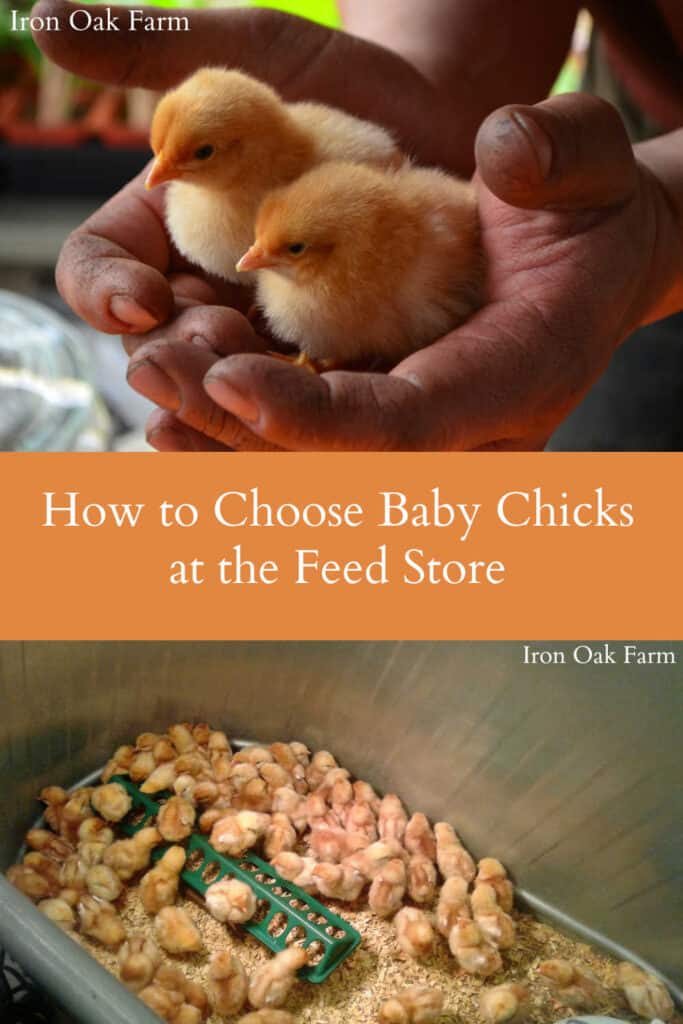Choosing Healthy Chicks from the Feed Store
One of the most exciting times of the year is when I walk into our local feed store and hear the peep, peep, peeping of baby chicks. It's like Christmas morning! Even though nowadays we hatch out most of our spring chicks in incubators, it's still exciting to walk around the bins, to look at all the different breeds, colors, and shapes. If you do decide to take home some fuzzies of your own, here are 7 tips on choosing healthy chicks from the feed store.



1. Are the Baby Chicks Well-Cared For?
The first thing I look at when I'm looking to choose healthy chicks is the living conditions in the brooder. Are the wood chips clean, do they have dry food and clean water? A heat source? If the store seems to be doing a good job caring for the chicks, then that's a good sign.



2. Do they let the public handle the baby chicks?
Feed stores are getting better about setting up brooders in a way that keeps people away from constantly handling the chicks. But make sure there is a barricade in place around the bins (often they use cattle gates to create a "brooder department") or at least an employee close by to help people and to watch over the bins. These baby chicks have just come through a stressful shipping process, they're less than a week old and the additional stress of being handled and chased by every Tom, Dick, or Harry can cause a lot of stress and health issues with a chick.
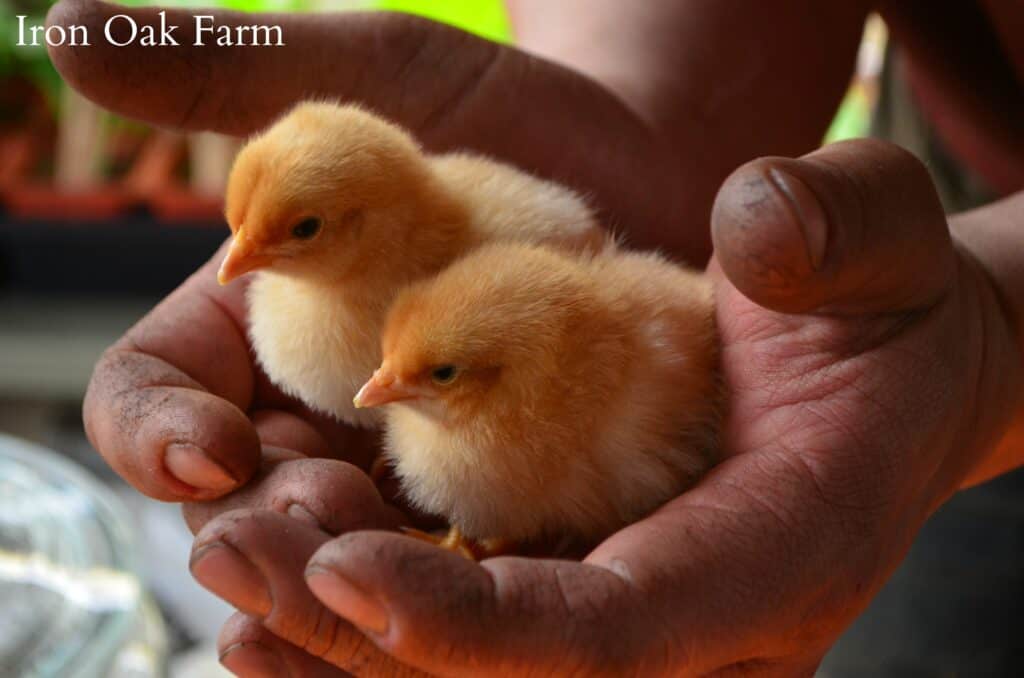


3. Wait!...if you can, wait to buy baby chicks from the feed store
I know it's near impossible to walk away from a brooder bin once you've decided to get chicks. But if you can...wait. The stress of shipping can weaken a chick, and if a chick isn't going to make it, it will often pass within 48 hours of arriving at the store. To make the process of choosing a healthy chick easier, ask the employee when the baby chicks came in. You will weed out the sick, injured, or dying chicks if you put some chicks on hold or wait until they've been settled at the store for a day or two. The reality is that a lot of chicks are lost in the shipping process. If you can let that happen at the feed store rather than at home, it will save you a lot of disappointment.



4. Ask about the return policy at the feed store
While tragedy happens, feed stores should stand behind the health of their chicks. You should be able to return a sick chick or one that has passed away within a reasonable amount of time. Make sure you're comfortable with the return policy before you purchase.
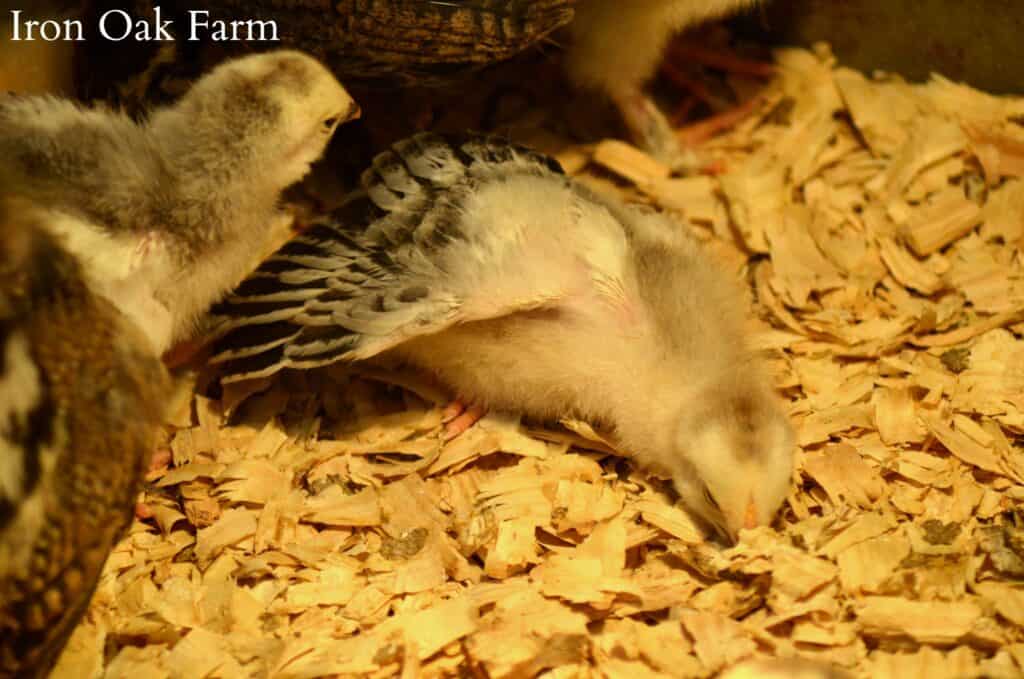


5. Lethargy in baby chicks
Look out for chicks that don't join the rest of the flock, chicks that are too easy to catch. Chicks that don't run when roused. It is normal for baby chicks to drop asleep suddenly.



6. Chicks that are peeping excessively
Often if a chick has an internal injury it will peep excessively. This is a frantic, loud type of peeping that will also happen if a chick is separated from the rest of its brood mates. If the chick is just standing there peeping loudly and for a long amount of time, it may be injured or in pain.
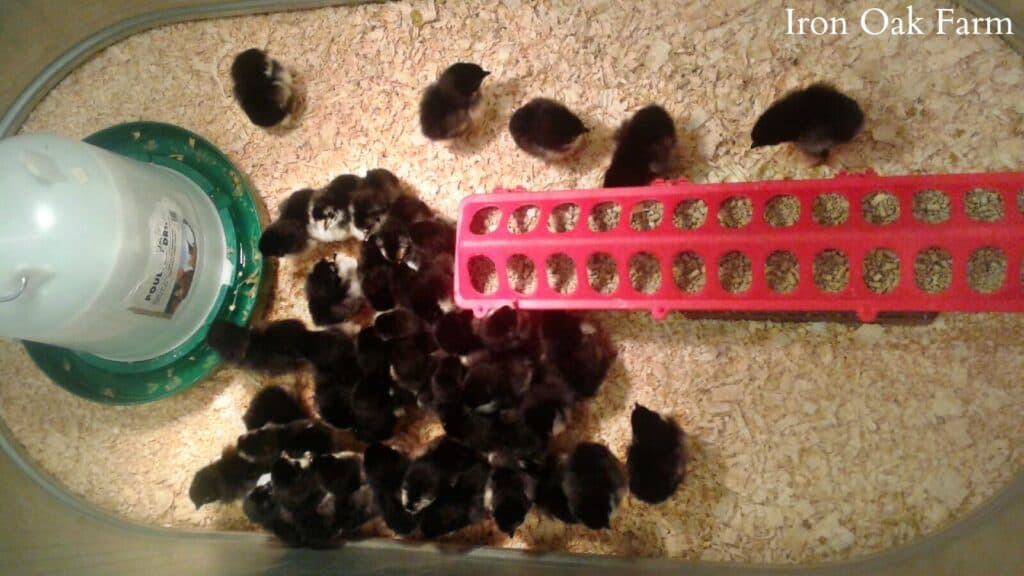


7. Pasty Butt
Pasty Butt is when the chick poops and the droppings stick to the hind feathers. If left unchecked, the poop will build up and block the chick from defecating. This can result in death. Often the chick is too small, weak, or ignorant to clean itself, and in the wild, Mama Hen would take care of it.
It is caused by stress, or if the chick was chilled in its early life.
If a chick has Pasty Butt in the brooder, it's not necessarily a bad chick, but you will have to be Mama Hen and clean the chick off with a warm cloth, sometimes repeatedly until it gets big enough to clean itself. If you want that chick, go ahead and get it. But if there's another one to choose from, choose the clean-bottomed one.



A note about choosing the biggest chick of the bunch
It might sound like common sense that you would want the largest, most strapping chick of the bunch. But beware, if the chicks are all the same age, often a large chick will be a rooster. Which is fine if that's what you want. The hatcheries claim that in a batch of sexed chicks you will have a 95% chance of getting a pullet. (In my experience it's more like 75%) But those large chicks, that stand upright and bossy, are often roosters.



Speak up! Get the chick you want!
I'm not a forward person... in fact, I can be quite shy and awkward. But over the years I've learned that a little forwardness when picking out chicks, can save a lot of disappointment. Watch the chicks for a while before getting a sales associate involved. See which ones you want. Which ones look robust? Are they eating and drinking, scratching, joining in with the other chicks, and responding to outside noises and disturbances?
Ask if you are allowed behind the barricade to pick out your own chicks. If not, make sure you let them know if there is a chick that stands out to you. You might get annoying looks as you tell them "no...not that one...the one by the feeder..." ...but they'll get over it and you'll be happy that you did!
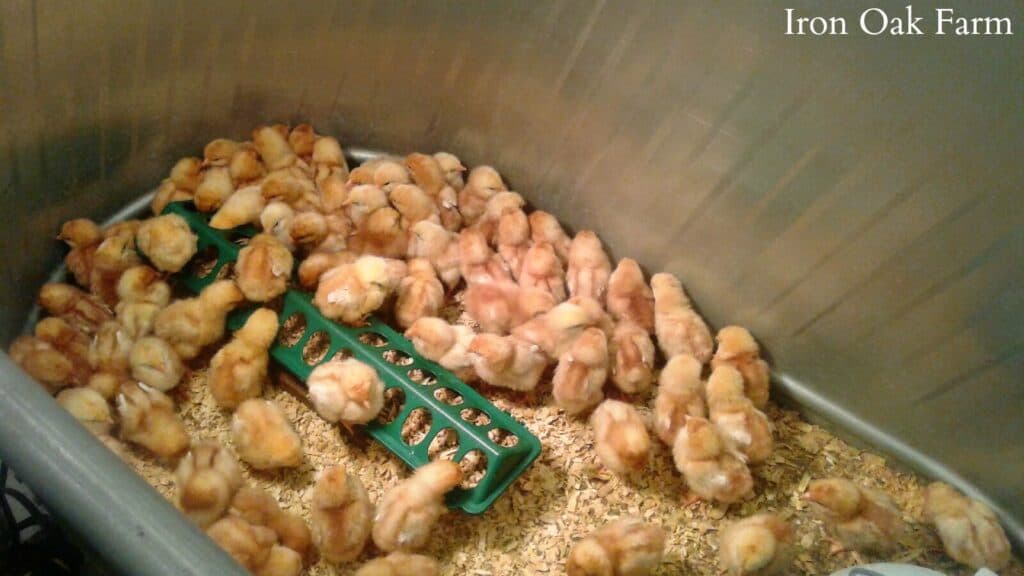


Shop this post!
Pin it!
